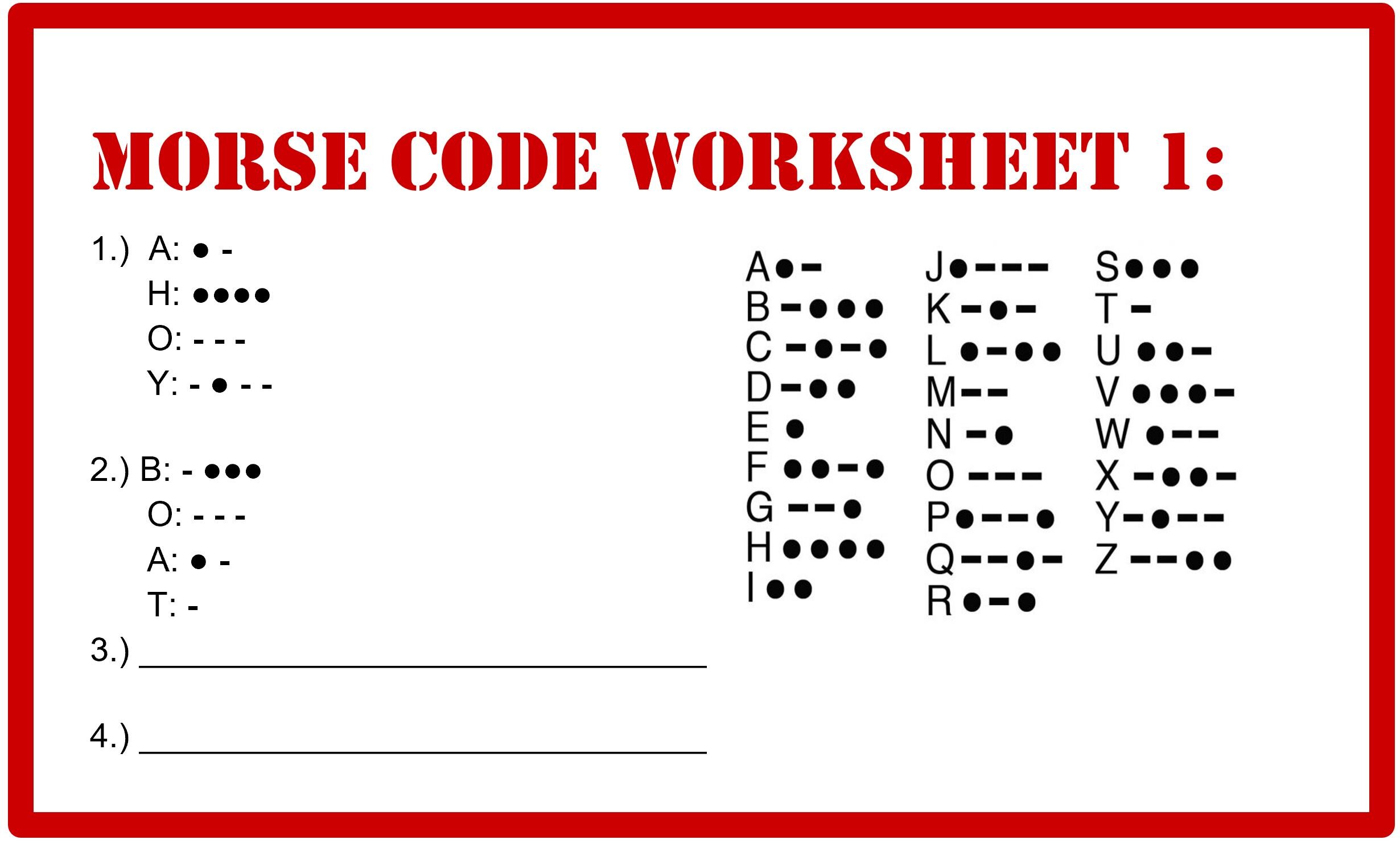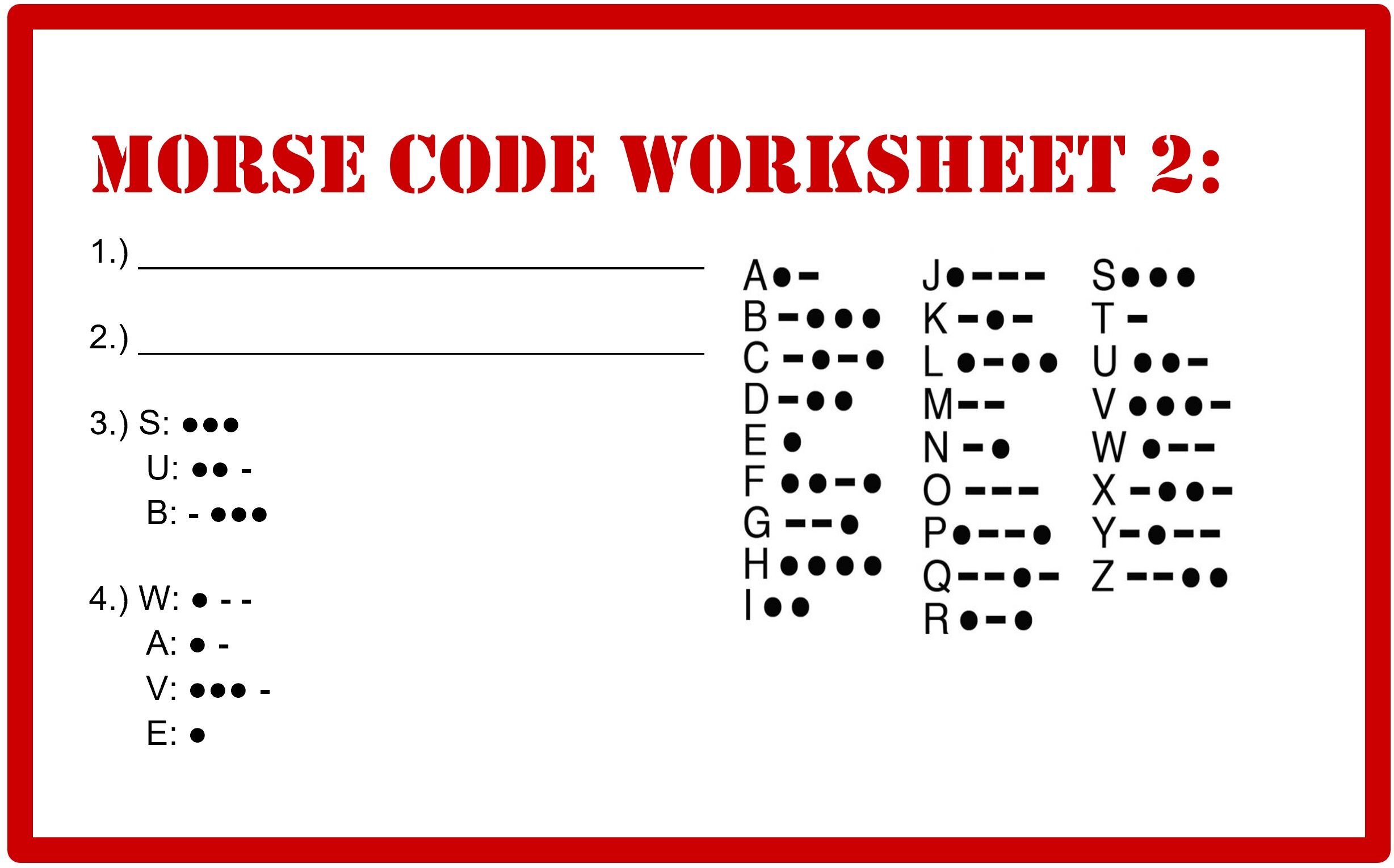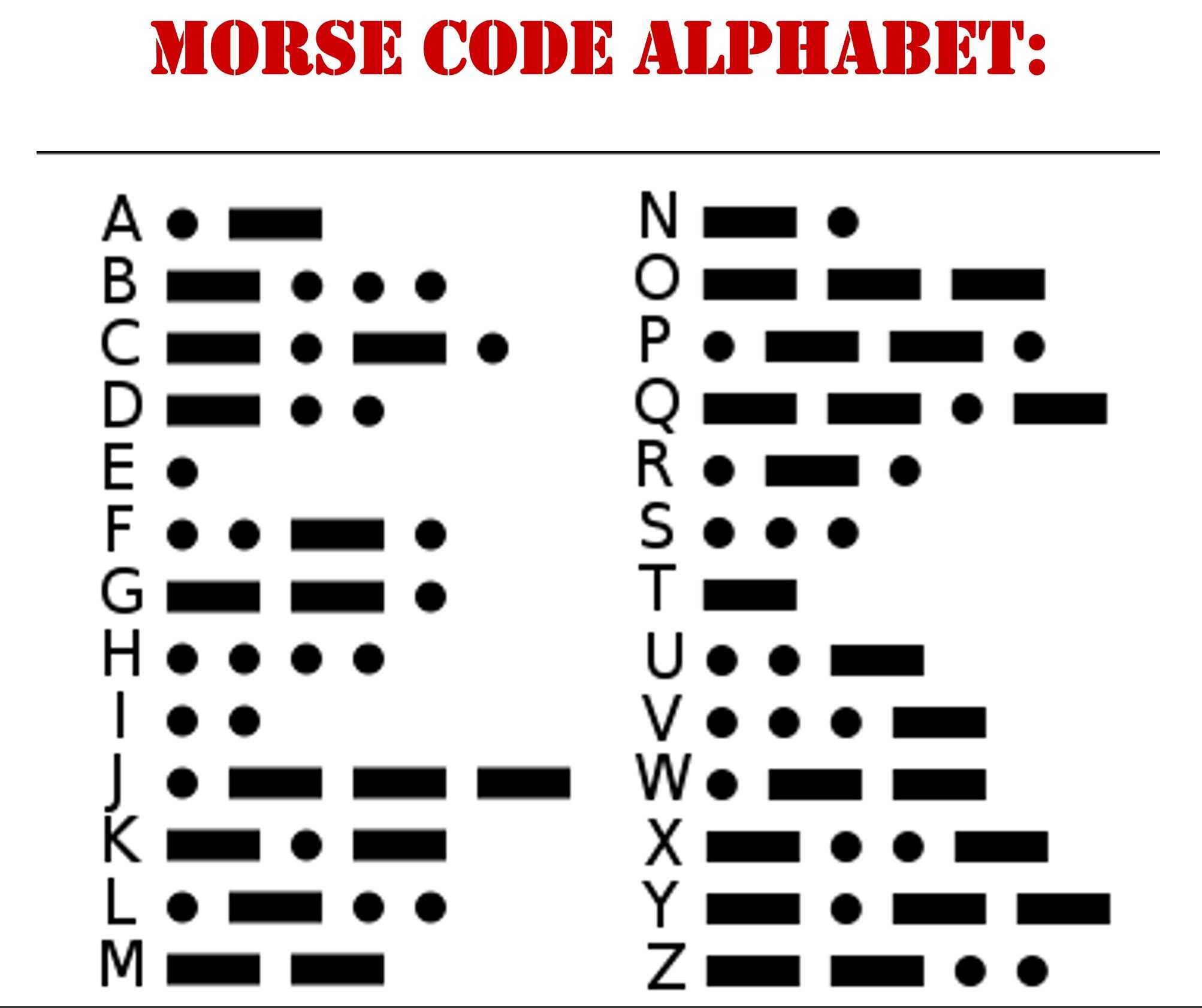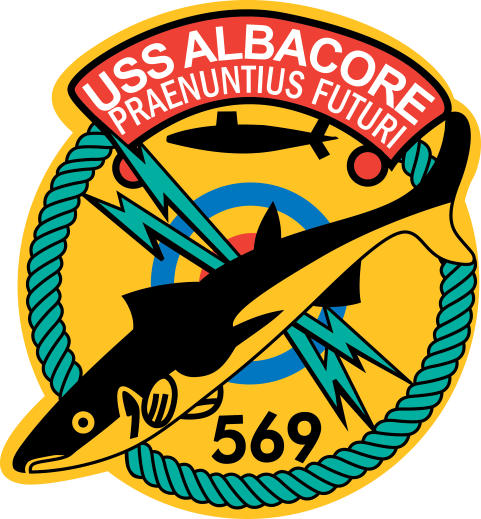Dashes and Dots: Morse Code And the Navy (Most Challenging)
Grades: 3-8
Connection to Curriculum Framework
Maine
- Science and Engineering
- 4-PS4-3 Generate and compare multiple solutions that use patterns to transfer information
- MS-PS4-3 Integrate qualitative scientific and technical information to support the claim that digitized signals are a more reliable way to encode and transmit information than analog signals
Massachusetts
- Social Studies
- Guiding Principle 5: an effective history and social science curriculum integrates knowledge from many fields of study
- Includes developments in science, technology, and mathematics
- Guiding Principle 5: an effective history and social science curriculum integrates knowledge from many fields of study
- Science and Technology/Engineering
- 4-PS4-3.Develop and compare multiple ways to transfer information through encoding, sending, receiving, and decoding a pattern.
- 5.3-5-ETS3-1. Use informational text to provide examples of improvements to existing technologies (innovations) and the development of new technologies (inventions). Recognize that technology is any modification of the natural or designed world done to fulfill human needs or wants
- 7.MS-ETS3-1. Explain the function of a communication system and the role of its components, including a source, encoder, transmitter, receiver, decoder, and storage
- 7.MS-ETS3-2. Compare the benefits and drawbacks of different communication systems.
- 7.MS-ETS3-5. Use the concept of systems engineering to model inputs, processes, outputs, and feedback among components of a transportation, structural, or communication system.
New Hampshire
- Social Science
- Theme G: Science, Technology, and Society
- Goals:
- Time Efficiency
- Impact of New Technology
- Core Questions
- What are the real costs of new technologies?
- How can we manage science and technology to provide the greatest benefit?
- Who benefits from scientific and technological innovations?
- Essential Skills
- Differentiating past, present and future and change over time
- Goals:
- Theme G: Science, Technology, and Society
- Science
- 4-PS4-3.Generate and compare multiple solutions that use patterns to transfer information.
- MS-PS4-3.Integrate qualitative scientific and technical information to support the claim that digitized signals
Time Frame:
30-35 minutes (10 min introduction, 10-15 minute activity, 10 minute follow up)
Objectives:
Students will learn about Morse Code communication on submarines. In learning about Morse code as a method of communication, students will better understand technological advances and how engineering has historical influence. Students will participate in an activity where they must communicate via Morse Code, thus forcing them to ponder how the medium of communication impacts the effectiveness of a message, and how it can then also affect interactions on board submarines, from submarine to submarine and from submarine to shore.
Setup:
Students will need a spot to shine the flashlight on, such as a desk, a whiteboard, or the ground. Set-up the classroom to accommodate a few different groups of students, with space in between. To social distance, clear a spot in the middle of the classroom and have students stand six feet apart and shine the flashlight at the floor in between them.
Introduction and Diagnostic Assessment:
- Ask the students to list some of the ways they communicate with their family and friends
- Ask if any of them know how countries, boats, etc. communicated with each other before the methods they mentioned existed.
- Morse code is a system of communication where dots and dashes are used to communicate letters and words. It was used before modern methods of communication, such as telephones or text messages, existed, and it is still used in situations where it is difficult to transmit written or spoken messages.
- Explain how Morse code works:
- Dots and dashes are used to spell out words.
- A certain pattern of dots or dashes corresponds to each letter.
- When using a light, longer flashes are dashes and shorter flashes are dots.
- Show Object I.D: 2019.135.0001 - Signal lamp
- This is the kind of signal lamp that was used for Morse code messages
- Show Morse Code Key
- The Albacore also used Morse code radio messages because the code could cut through the static of the radio
- Now you are going to have a chance to try out communicating via Morse code!
Procedure and Formative Assessment:
- Have the students get back in their small groups
- Give half of the students in each group Morse code worksheet 1 and a flashlight and the other half of each group Morse code worksheet 2
- The two halves of each group should stand around a surface which they will shine the flashlight on, such as a desk, wall, or spot of floor, so they are not aiming the light directly at each other. The light will show up better on dark surfaces, so you might want to lay out a piece of dark construction paper.
- To Social Distance: Put students in groups of just 2, one for each sheet. Have them stand 6 feet apart, aiming the flashlight at a spot in the middle, such as the floor.
- Those with the flashlight and worksheet 1 will spell out the words on their sheet to their teammates. When their teammates have correctly identified each word, they will hand the flashlight off to those with worksheet two, who will then have a turn to signal words
- Walk around the room and make sure the students are completing the activity correctly. See how they adjust their methods to account for challenges and most effectively communicate
- When both halves of a group have communicated their words, the activity is done.
- See which group can get all of their words first!
Follow-Up and Summative Assessment:
- Ask the students what they thought about messaging in Morse code. What was difficult or frustrating about it? How is it different from how we communicate nowadays?
- Have the students put technological progress in context: How does communicating via telephone or with written messages rather than Morse code change the nature of communication? How might this affect wars?
- What could some drawbacks of new methods of communication be?



